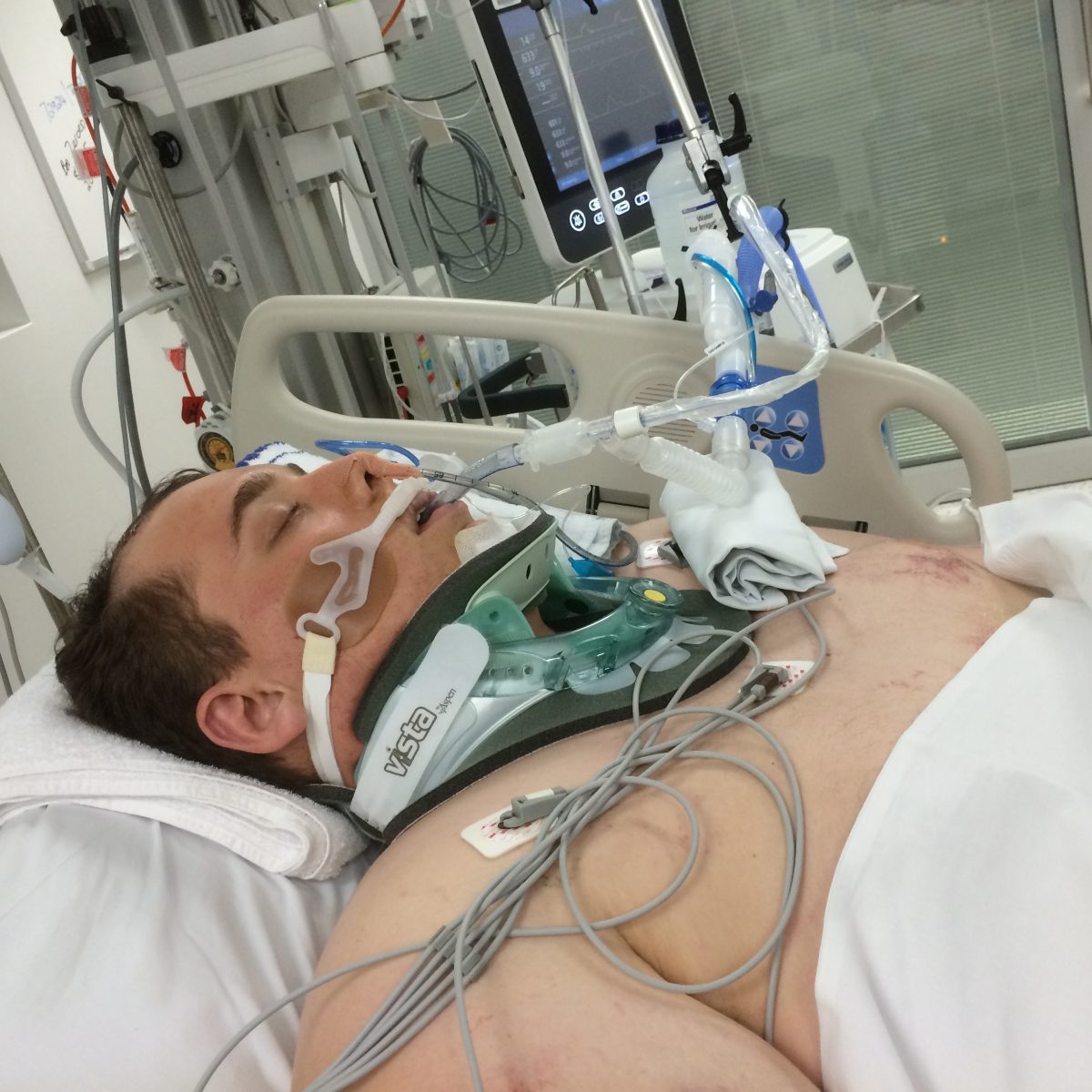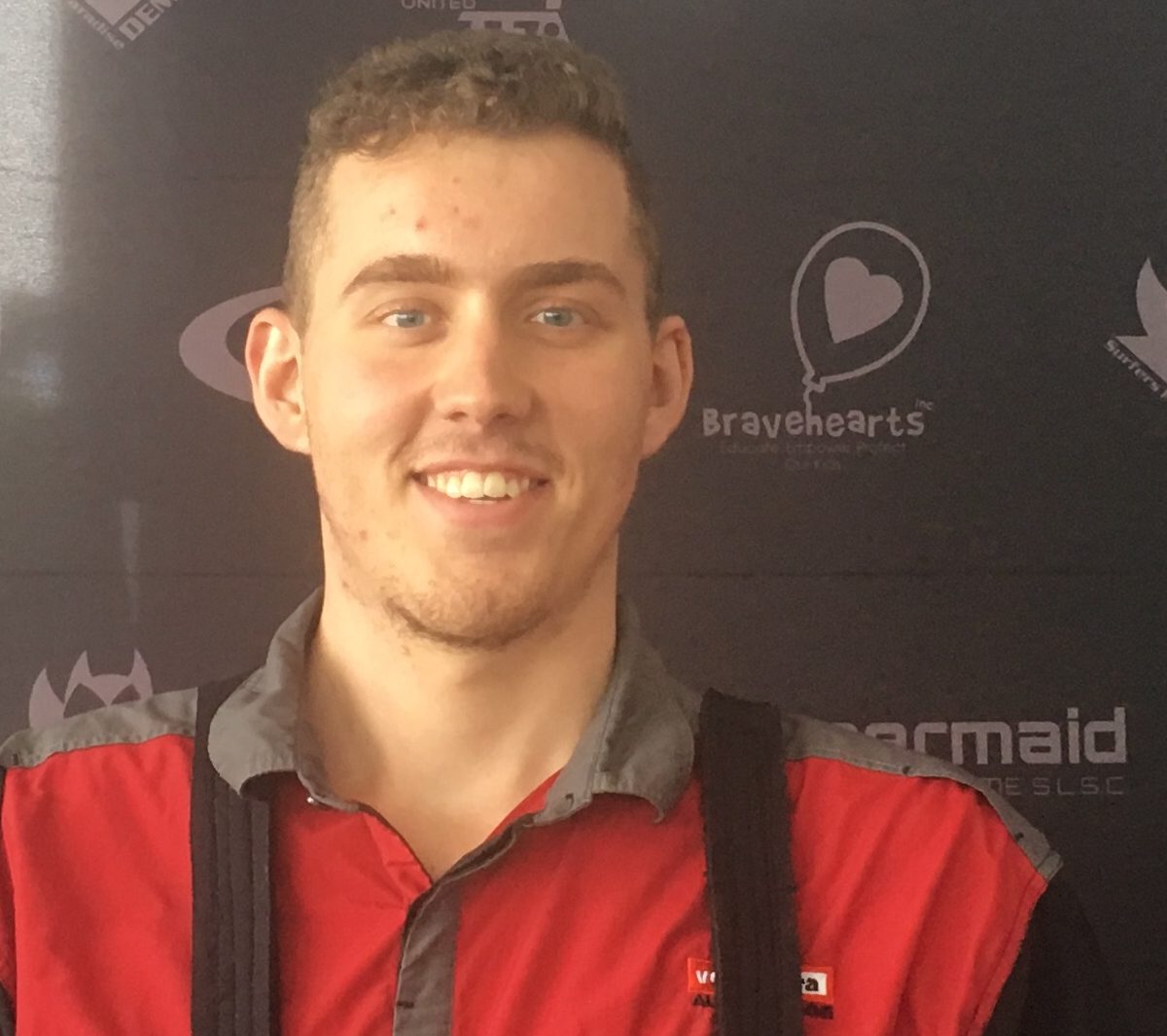Alex Lees is incredibly thankful he’s alive. The 22-year-old from Reedy Creek suffered nearly 20 traumatic injuries in a horrific motorcycle crash that almost ended his life, saw him wind up in a hospital bed for three months, and later battle depression.
In October 2015, the then 18-year-old was enjoying a day out riding his motorcycle with two close friends in the Numinbah Valley. As he approached a curve along Pine Creek Mountain Road, Alex suddenly went off the road and collided head-on with a tree. He was thrown approximately eight metres down an embankment.
Alex was lying on the ground unconscious, bleeding internally and unable to breathe.
“I don’t remember my accident. I was knocked out on impact and lost almost two litres of blood,” Alex said.

His friends desperately waved down a passing vehicle for help. Fortunately, the driver was a former lifeguard trained in first aid. Realising Alex wasn’t breathing, the lifeguard carefully removed his helmet and cleared his airways – an action doctors would later credit for saving Alex’s life on the roadside.
Alex was urgently airlifted by helicopter to Gold Coast University Hospital, where he was rushed into the Emergency Department to prep for surgery.
It was during this 13-hour ‘damage control’ surgery that doctors discovered the severity of his life-threatening injuries.
Alex sustained 18 injuries including a broken skull at the base of the neck, brain injury, fractured pelvis, collapsed lung, partially torn aorta, fractured vertebrae, broken breastbone, bleeding into the abdomen, perforated large bowel, torn arm nerves, broken leg, dislocated knee, and massive bruising to the lungs and heart.
The injury to his neck was so severe that the nerve root in his right arm was completely torn from the spinal cord, leaving his arm paralysed for the rest of his life.
Alex spent 13 days in a coma. His worried parents, Desiree and Mark Lees, will never forget seeing their son’s body covered in bruises and abrasions; stitches running across his skull; a colostomy bag inserted into his abdomen; machines beeping and tubes everywhere.
“There were so many mixed emotions seeing our child like that. It was such a shock. I felt scared having no understanding of what was going on, but the hardest part was leaving him every day. I would often leave the hospital in tears – it broke my heart,” Desiree said.
His recovery was long and painful. In total, Alex spent 71 days in hospital and underwent 12 surgeries. Despite having two nerve transplants, it’s unlikely Alex will ever regain complete function in his right arm and will need to wear a sling permanently to reduce the risk of further injury. It’s a lifelong disability that will impact his daily life.

“I can now feel a very small amount of sensation down to my elbow,” he said. “Before that I couldn’t feel anything.”
Alex’s traumatic ordeal caused a flow on effect of other health issues including slurred speech, memory loss and depression.
Alex said his depression affected his whole life and his family for months after leaving hospital and into his recovery.
“I was depressed for a long time before getting help, but my psychologist helped me deal with a lot of my emotions and feelings of insecurity about not being able to get a job last year once I was recovered enough from my injuries to return to work,” Alex said.
Research shows post-traumatic stress disorder (PTSD) and major depression occur in approximately nine to 10 percent and 15 percent of traumatically injured patients, respectively.
As part of its annual Tax Appeal, Gold Coast Hospital Foundation is appealing to the local community to help raise funds to support vital health research. Two of the current research projects aim to decrease the impact of PTSD and depression to improve health outcomes for patients, just like Alex, following a traumatic injury.
Foundation Fundraising Manager Vicki James said $130,000 is needed to deliver these two research projects.
“This world-class research happening right here on the Gold Coast at our hospital will help patients like Alex by working to detect and provide early intervention for PTSD and depression,” Mrs James said.
Gold Coast Health Clinical Psychologist, Doctor Kristen Jones, said the extensive trauma research project aims to support patients who have been admitted to the Gold Coast University Hospital Trauma Service following traumatic injury.
“Traumatic injury is a common occurrence for adults on the Gold Coast, and does not discriminate. Through no fault of their own, anyone can find themselves in a situation where they become one of our patients,” Dr Jones said.
“The potentially long-lasting physical and psychological consequences associated with a traumatic injury can negatively impact a patient’s quality of life, relationships, return to work and pain management.
“The development of a new PTSD and depression risk rating tool will help medical staff identify individuals who may be at risk of these symptoms in the near or distant future. The aim would be to either prevent the onset of PTSD and/or depression or more easily facilitate early intervention, and hence, symptom reduction.
“This research will significantly benefit the medical care provided to patients in Gold Coast University Hospital’s Trauma Service by giving medical staff a comprehensive tool to better understand what increases a person’s risk, when symptoms begin, and how long symptoms last.”
Desiree said the community needs to be made aware of how important this research is.
“No one ever plans on being in a situation like Alex’s. That’s why funding for mental health research is so crucial. By better understanding how trauma affects people’s lives, we can then better support trauma survivors,” Desiree said.
Tax-deductible donations from generous Gold Coasters will help the Foundation fund this important research to help identify patients like Alex who are at risk of suffering depression or PTSD following a traumatic accident.
“Whatever anyone can donate is appreciated and much-needed,” Alex said.
Nowadays Alex has overcome his battle with depression and found full time work as a mechanic.
“I’ve changed quite a lot since the crash. My family and friends are constantly reminding me how far I’ve come and that I’m doing so well at my job despite not having the use of my arm. It’s my passion fixing cars, so it’s awesome to be back working and actually doing something I love,” he said.
“I’m often asked if I would get on a motorbike again and I say, if my arm worked properly, I would.”
Desiree said she cannot begin to imagine how hard this has been on her son.
“I look at what Alex achieves everyday with the use of only one arm. He is the bravest and most determined person I know. We couldn’t be prouder of him,” she said.